Roasted coffee beans stay fresh for 10–30 days, with proper storage extending their flavor up to 3 months. Learn tips to keep them fresh and recognize signs of staleness.

Are you the kind of coffee lover who buys coffee in bulk so that you never run out of your favorite beans? You might want to reconsider, as your stash of beans could go bad, or worse, spoil. By understanding how long do roasted coffee beans last and how to keep them fresh longer, you can enjoy rich, delicious coffee for weeks after opening.
This article explores how long do roasted coffee beans last, from practical storage tips to how to deal with environmental factors. You’ll learn simple techniques to make the most of the shelf life of roasted coffee beans and discover the secret to keeping your beans fresh.
Factors affecting coffee bean freshness
The main factors that affect the freshness of coffee beans are light, air, time, humidity, and the purchase of ground coffee.
- Roasting date: The roast date indicates when the raw coffee beans were roasted. How long do roasted coffee beans stay fresh? – This process turns the raw beans into the aromatic brown beans we value, which can then be ground and brewed into our favorite beverage. The freshness of coffee beans is closely related to their roast date.

- Oxidation: After roasting, coffee beans lose their freshness due to oxidation. This is a natural process when the beans come into contact with air. This process occurs due to the presence of oils and other substances in the coffee beans that react with oxygen. Over time, these interactions can lead to changes in taste, aroma, and overall quality.
- Degassing: After roasting, coffee beans pass through the stage of degassing which involves the release of carbon dioxide (CO2). Freshly ground coffee diffuses CO2 rather fast and this leads to fluctuation in the extraction process. This is known as channeling and it is a situation where the water flow in the coffee is not constant, hence it does not give a proper cup. You may notice under-extracted flavors, such as acidity or lack of body, and over-extracted flavors, such as bitterness and astringency.
- Storage conditions: Various factors affect the quality of coffee beans, including moisture, temperature, and light. Therefore, it is important to store coffee beans correctly to ensure consistently high-quality coffee. For example, coffee roasters avoid oxidation by storing coffee beans in airtight containers.
Is your coffee stale? Learn how to tell here.
Read more >>> TOP 10 The Best Wholesale Coffee Manufacturers for Bulk Coffee Orders
How long do roasted coffee beans last?
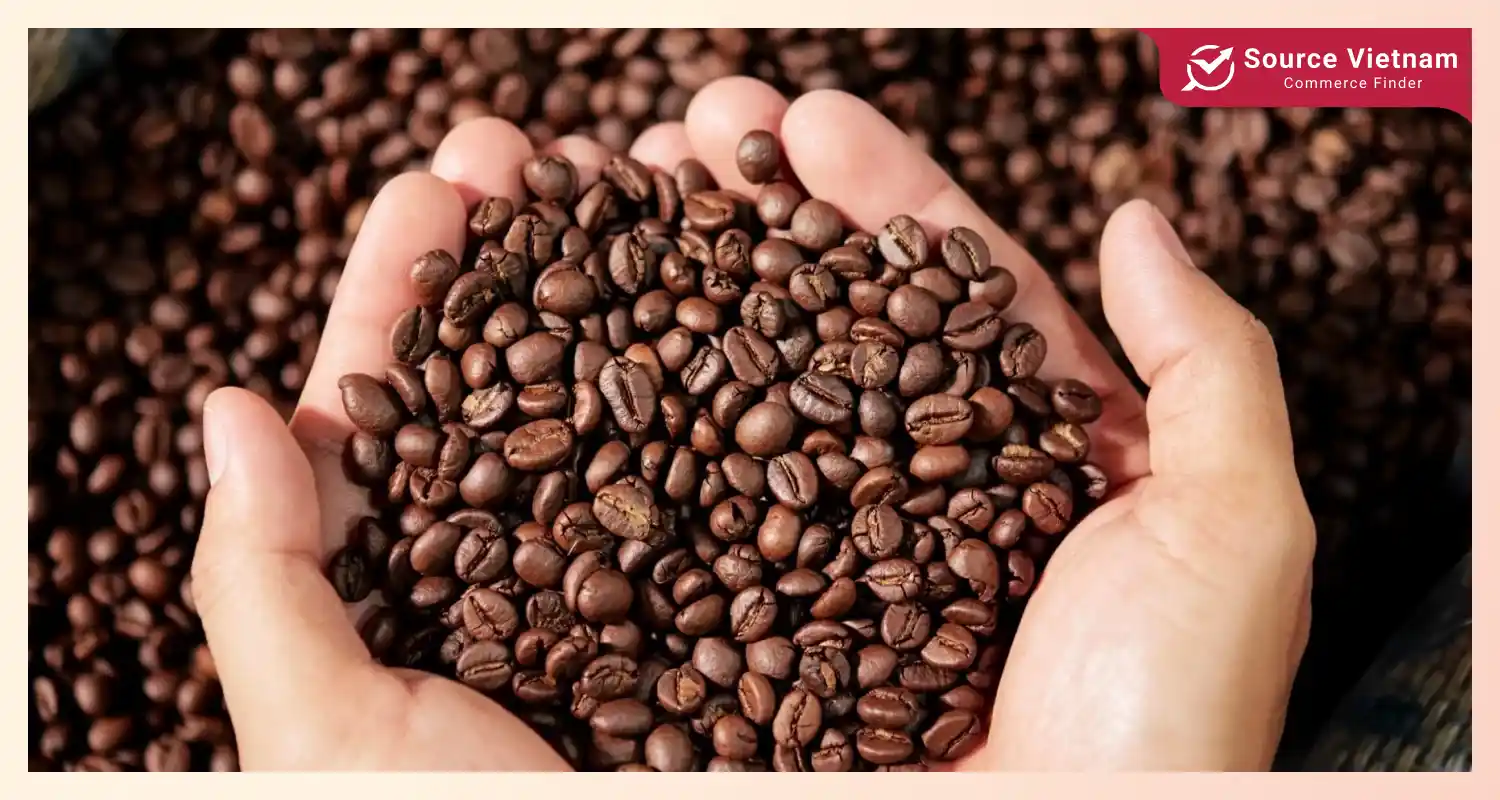
There are so many questions about: how long do roasted coffee beans last? How long are roasted coffee beans good for? Or how long do you roast coffee beans? This will depend on the form that your coffee is in as well as what you consider to be acceptable. The information about when coffee is considered to be fresh or tastes fresh is as follows:
- General timeline: Freshly roasted whole coffee beans reach their best aroma and flavor 10 to 30 days after roasting. Coffee beans can stay fresh for up to 3 months if properly stored in an airtight container or bag in a cool, dark place, but their quality will decline after the first month. Ground coffee beans, on the other hand, lose their freshness much faster, usually within 1 to 2 weeks.
- Whole beans vs. ground coffee: The main difference between ground and whole bean coffee is their freshness, flavor, and aroma. Freshly roasted whole coffee beans stay fresh for up to a year in an airtight container, and a week to a month after opening. Ground coffee beans, on the other hand, have a shorter shelf life than roasted coffee beans. If unopened, they stay fresh for several months, but are best consumed within a few days of opening.
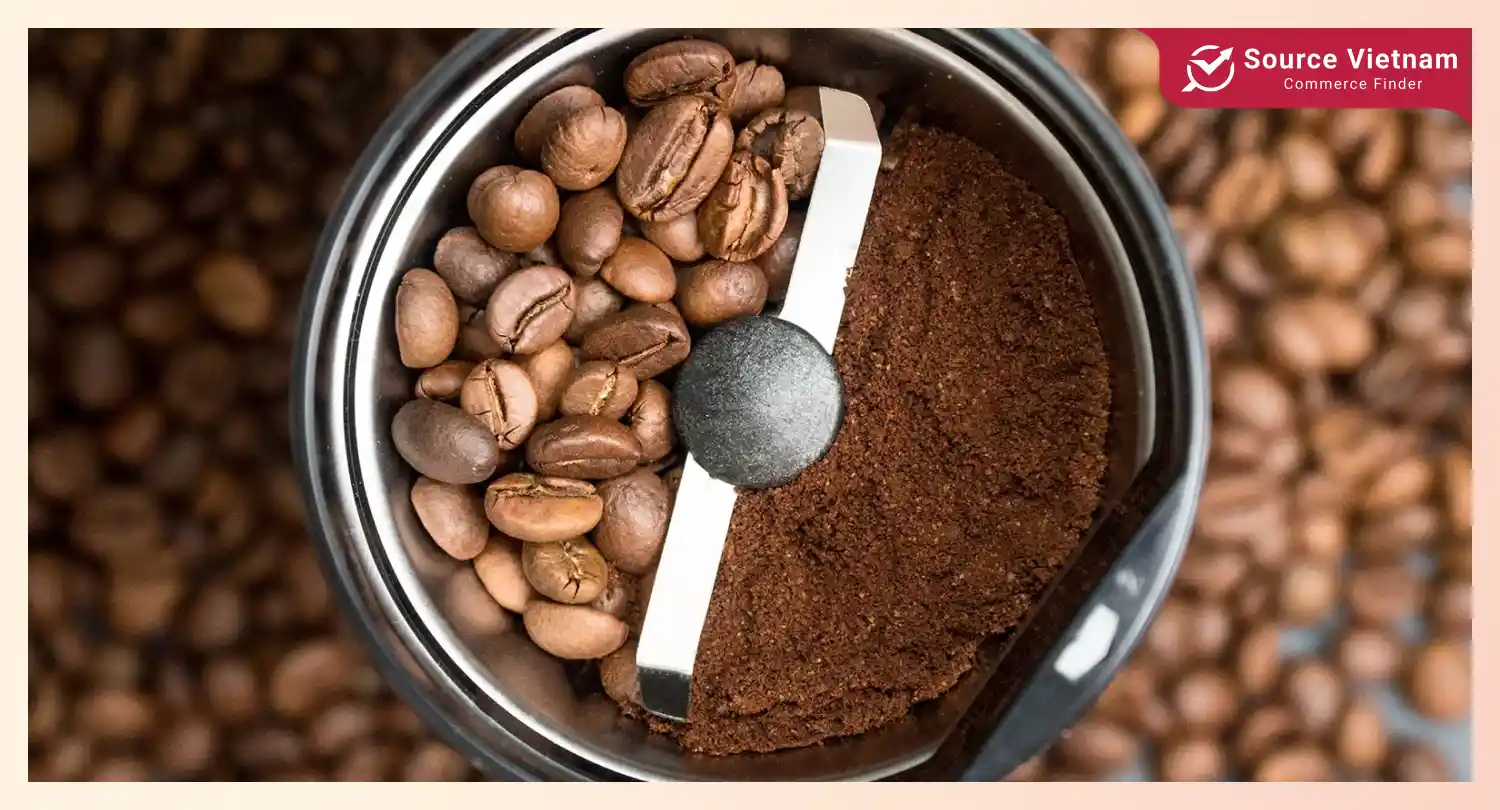
- Signs of stale coffee: Beans are known for their extended shelf life, yet they are a natural product and, similar to other food items, can deteriorate in quality or spoil as time passes. Certain indications that coffee beans have become stale include reduced aroma, lackluster flavor, and an oily look…
Find out how long your coffee beans really last here.
Read more >>> Difference Between Coffee Bean and Espresso Bean
Signs that coffee beans have gone stale
As coffee lovers, we understand how crucial it is to use fresh coffee beans to get the finest flavor and aroma in our beverage. However, how can you determine whether your coffee beans are fresh or have lost their freshness? Below are some key indicators and signs that coffee beans have gone stale:
- Aroma: Your sense of smell is an effective way to recognize stale coffee. Breathe deeply into your coffee beans. If their aroma is musty, moldy, or reminiscent of cardboard, it’s probable that they are stale. Fresh coffee beans emit a delightful, aromatic fragrance.
- Appearance: If the beans or grounds no longer boast a vibrant brown or black hue, but instead look dull and tarnished, they should be discarded. If you notice any signs of mold, it’s clear what to do: those beans need to be thrown away. Fresh coffee beans ought to have a dry, matte finish. Should they appear oily or glossy, it might indicate staleness. This happens because aging coffee beans emit oils that can accumulate on the surface.
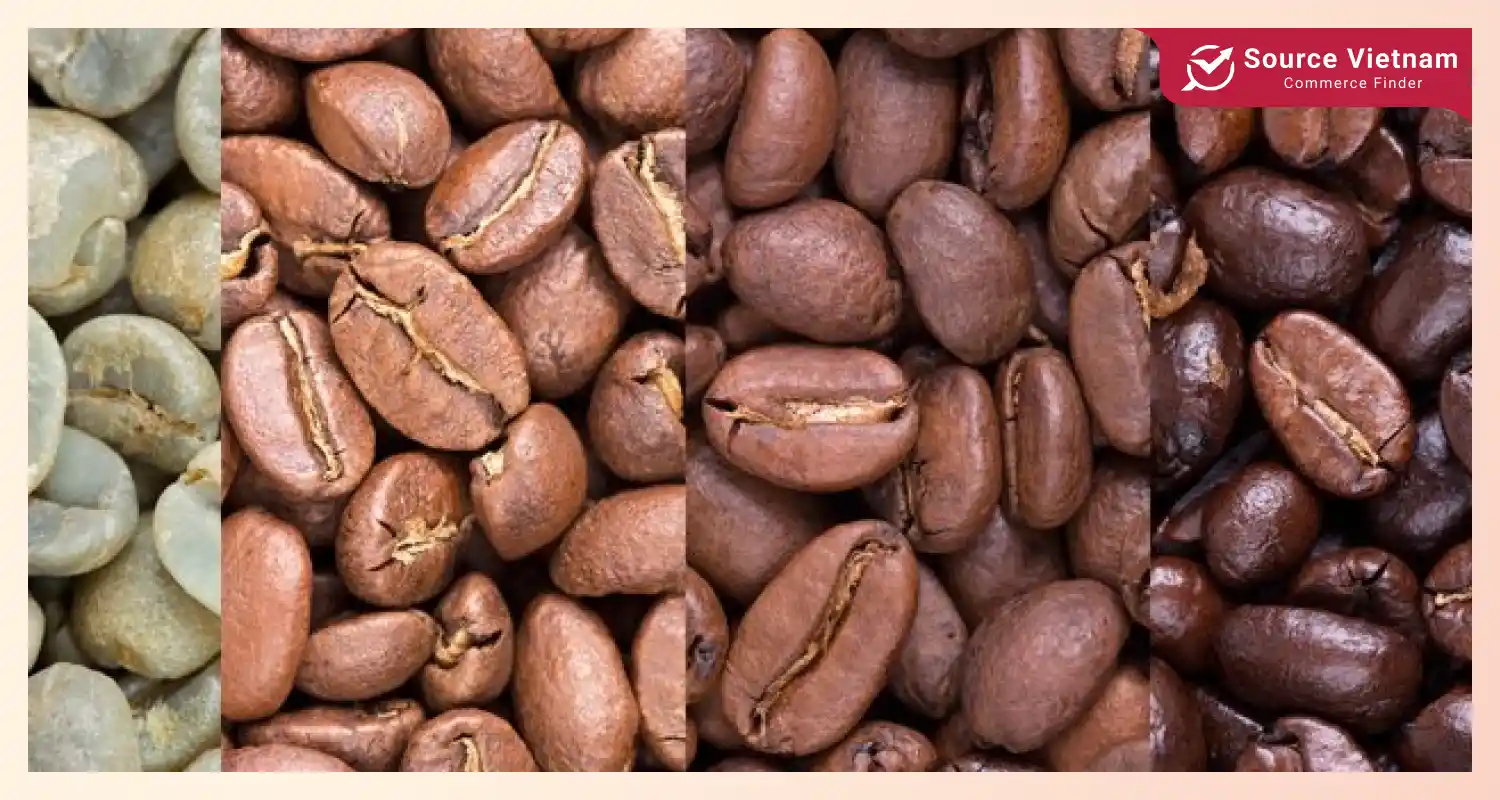
- Flavor: It may not become clear until after brewing that the coffee beans have gone bad. If your coffee has an unpleasant aroma or an off flavor, it’s likely that the beans have deteriorated or are stale. However, it’s also wise to consider other potential causes for the flavor change. For example, a dirty coffee maker might lead to a bad taste. That’s why it’s essential to routinely clean your machines.
- Grind: Once you’ve ground the beans, you can attempt to rub the coffee with your fingers. Fresher coffee beans should leave behind some oils, giving a sensation of moisture. In contrast, stale coffee will have a dry, grainy texture and won’t clump together, indicating that it has surpassed its ideal coffee bean freshness timeframe.
Is your coffee stale? Learn how to tell here.
Best storage practices for coffee beans
To brew the finest cup of coffee, begin with high-quality beans and ensure they are stored correctly to maintain their freshness and taste. Coffee’s flavor and aroma are best when the beans are recently roasted, but poor storage can rapidly diminish their quality. To keep your coffee beans in top condition and prolong their lifespan, follow these coffee storage tips and maintenance recommendations.
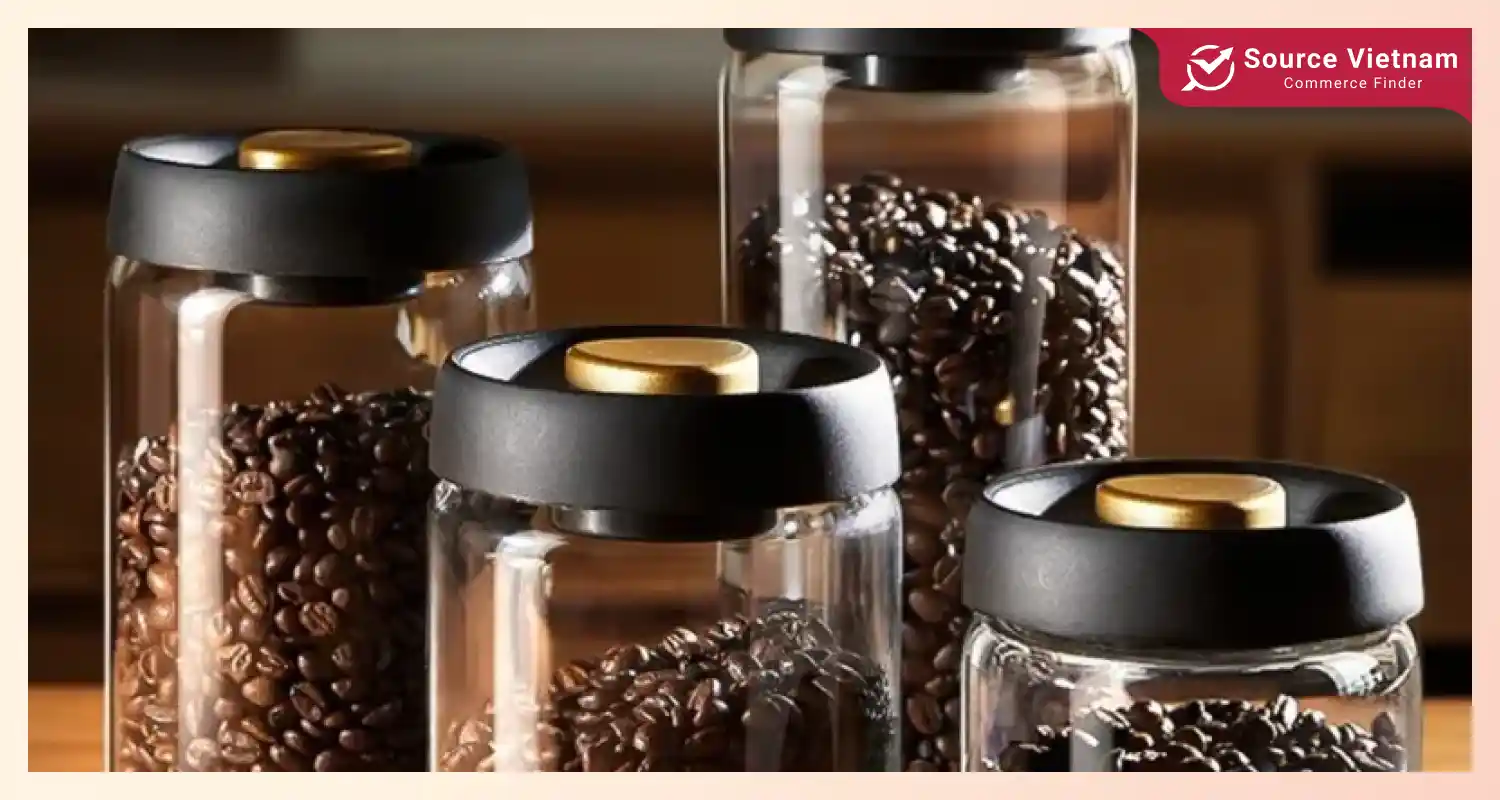
- Airtight containers: Air exposure is a major factor that speeds up the deterioration of coffee beans. When the beans come into contact with air, oxidation occurs, resulting in a loss of flavor. To reduce air exposure, split your coffee into smaller servings and store each one in airtight containers. By doing this, you’ll only expose the portion you’re currently using while keeping the remaining coffee sealed and fresh.
- Cool, dark place: Coffee beans are affected by light, heat, and humidity. To maintain their freshness, keep your coffee beans out of direct sunlight and in a cool, dark location. Refrain from placing the coffee container in proximity to the stove, oven, or any other appliances that produce heat. A pantry or cupboard serves as a perfect spot.
- Whole beans: Although pre-ground coffee offers convenience, purchasing whole beans and grinding them right before brewing can greatly prolong their freshness. The act of grinding enhances the surface area of the coffee, which leads to greater exposure to oxygen. By grinding only the amount necessary for each brewing, you safeguard the coffee bean freshness.
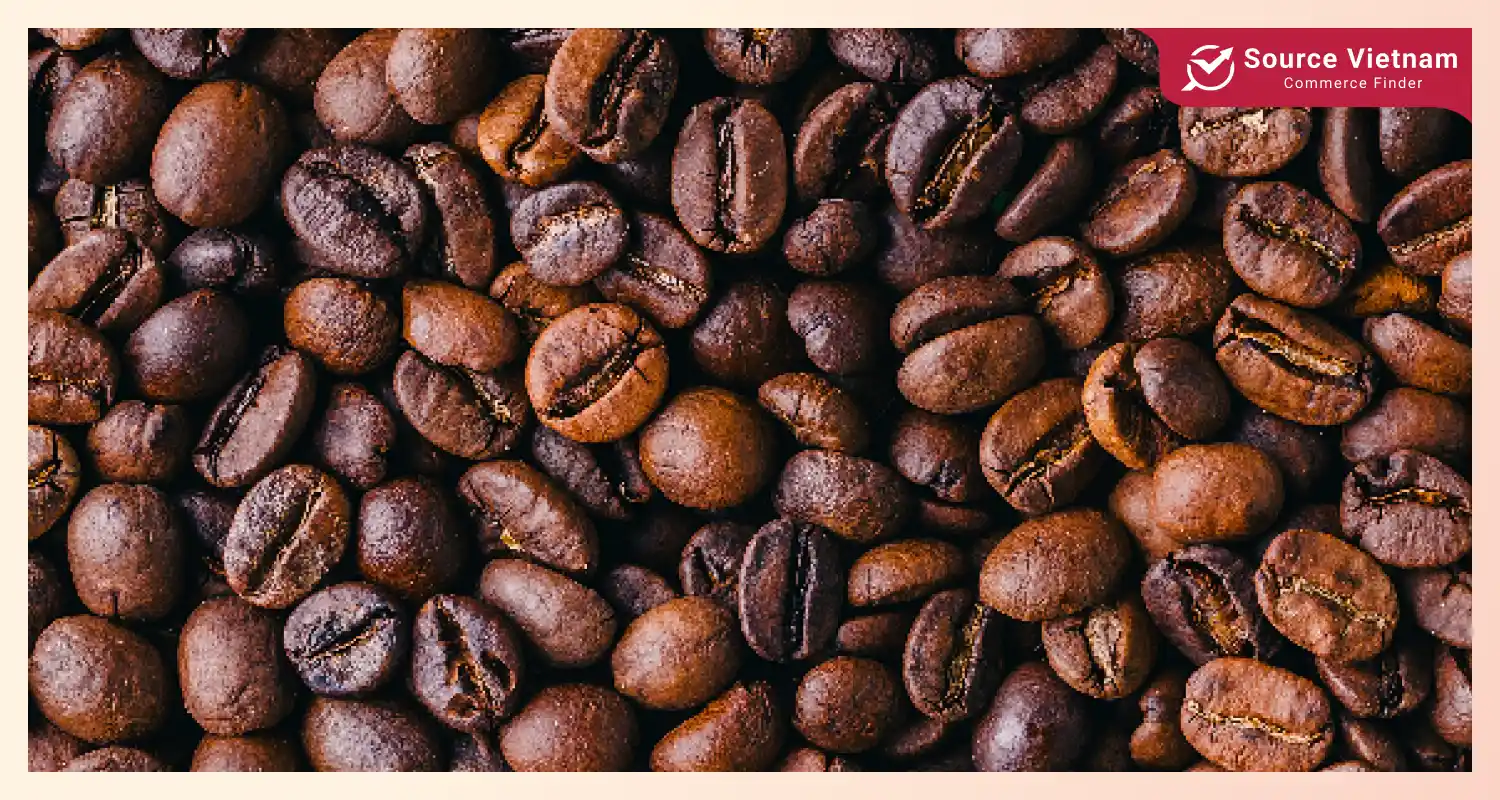
- Freezing coffee beans: Freezing coffee beans can be beneficial if done properly. Keeping vacuum-sealed coffee (ensuring there is no moisture or oxygen inside the packaging) in your freezer for an extended period can prevent it from going stale as it would if kept in a cabinet at room temperature. However, putting opened bags of coffee in the freezer will lead to it going stale more quickly than usual.
- Avoid common mistakes: Coffee beans have a porous structure, allowing them to soak up moisture, odors, and flavors from their surroundings. Keeping coffee beans in the refrigerator or freezer can result in the beans absorbing moisture and oils due to the cold and humid conditions, which can diminish their flavor and aroma. Additionally, every time you remove the beans from the fridge or freezer, they are subjected to condensation and humidity, which can further impair their quality.
Discover the ultimate guide to storing coffee beans here.
Tips to extend the freshness of coffee beans
Coffee is a product that can perish, and its freshness is directly related to its taste and scent. Although it doesn’t spoil in the same way as dairy or fruits, it can rapidly diminish in quality due to various environmental conditions and chemical changes. After answering the question how long do roasted coffee beans last, knowing these processes can aid you in prolonging the freshness of coffee beans.

- Buy small quantities: A straightforward method to guarantee fresh coffee is to purchase only what you plan to consume in a brief timeframe. Coffee’s flavor deteriorates the longer it remains unused. By acquiring smaller quantities, you minimize the risk of coffee becoming stale before it’s consumed. Additionally, buying in smaller batches allows for more frequent restocking, ensuring you consistently have fresh coffee available.
- Check the roast date: The quality of your coffee starts with your purchase. Coffee beans reach their optimal flavor soon after they are roasted. For the best quality, always look for a roast date instead of merely a coffee bean expiration date. Coffee marked with a recent roast date shows it’s fresher and probably has a longer shelf life.
- Proper grinding: Whole beans have a much longer shelf life compared to ground coffee, since grinding increases the surface area exposed to air, which speeds up oxidation. If you haven’t purchased a coffee grinder yet, it is a valuable investment.
- Limit exposure to air: Air exposure is a primary contributor to the deterioration of coffee beans. To reduce air contact, split your coffee into smaller amounts and store them individually in airtight containers. This method allows you to only open the portion you are using, ensuring the rest remains sealed and fresh.
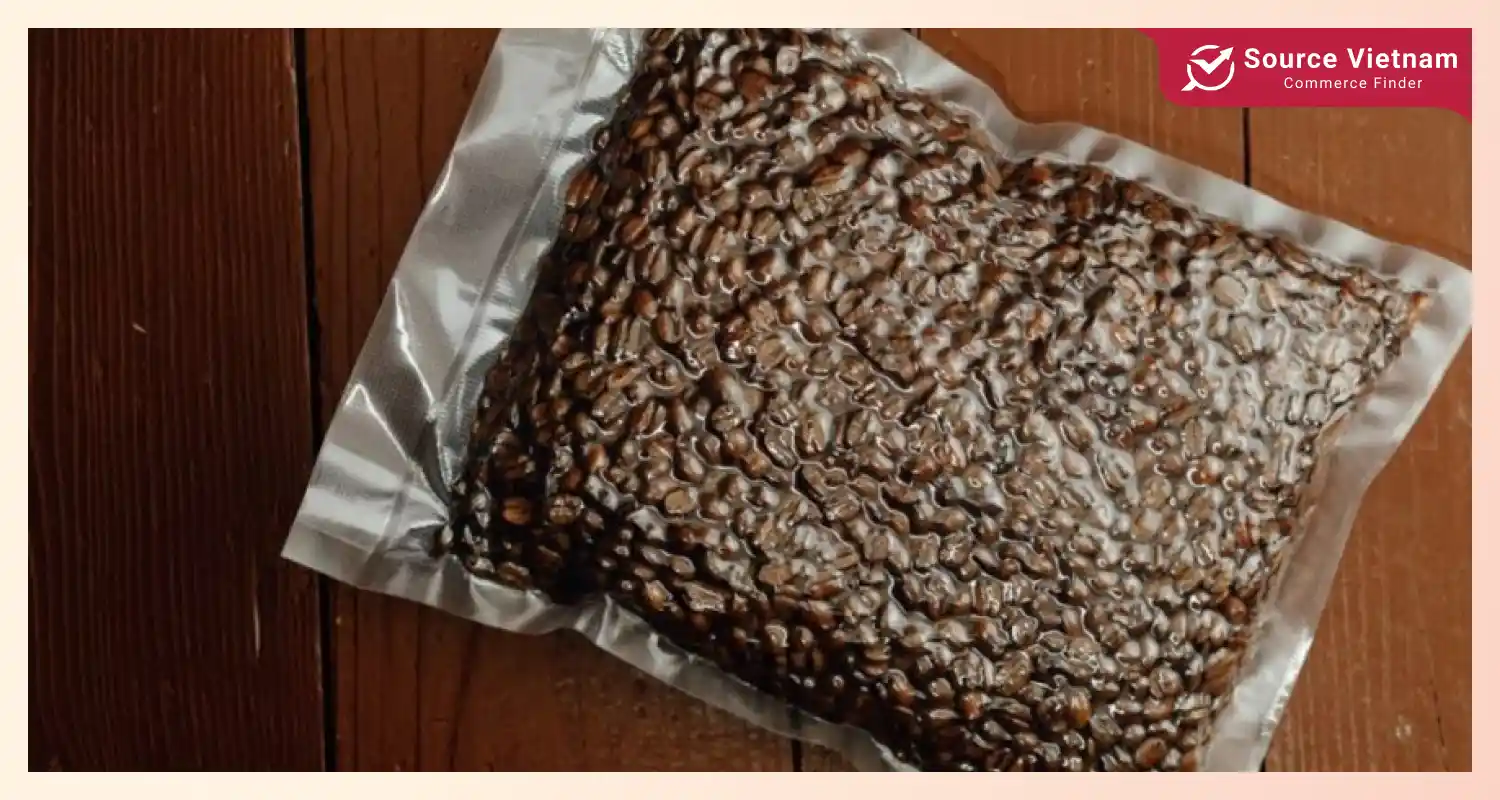
- Optimal storage conditions: The initial step in safeguarding your coffee beans is to choose an appropriate storage container. Keeping them in a cool, dark, and dry environment is strongly advised. The valve permits the escape of carbon dioxide while keeping oxygen out, which helps avoid oxidation that could affect the taste. Furthermore, opt for containers crafted from materials that do not impart any odors or flavors, like ceramic or stainless steel.
Avoid these common coffee storage mistakes here.
Conclusion
Via this article, we hope that you will get some expert tips to extend the freshness of coffee beans. The article of how long do roasted coffee beans last directly contributes to their general timeline and some signs of stale coffee. Therefore, it’s important to consider the elements that influence the freshness of coffee beans in order to adopt effective storage methods for the best flavor experience. Your roasted coffee beans shelf life can be increased with proper storage.
If you love coffee or are a true coffee aficionado, explore more coffee storage tips and shop high-quality beans at SourceVietnam.com right now!
FAQs
How can I tell if my coffee beans are fresh?
To determine if your coffee beans are still fresh:
- Roast Date: Check the package for the roast date. The optimal flavor of fresh beans is experienced within 2-3 weeks after roasting.
- Smell: Fresh beans emit a strong, rich fragrance. If they scent dull or rancid, they have gone stale.
- Appearance: Fresh beans might exhibit a slight oily surface and should display a consistent color. Stale beans have a lackluster or uneven appearance.
- Taste: Fresh coffee delivers a vibrant and flavorful experience; stale coffee tastes flat and uninteresting.
- Packaging: Beans kept in vacuum-sealed bags with one-way valves are likely to be fresher.
To achieve the best flavor, enjoy your coffee soon after roasting and keep it stored in an airtight container away from light and heat.
How should coffee beans be stored?
To keep coffee beans fresh for as long as possible, follow these guidelines to find out the best storage methods for coffee beans:
- Use an airtight container: Choose a container with a secure seal to limit air exposure, which can lead to oxidation and a stale taste. Glass or ceramic options work best.
- Store in a cool, dark environment: Keep the beans in a cool, dry location, away from light, heat, and moisture. A cupboard or pantry is ideal.
- Steer clear of the freezer: Placing coffee beans in the freezer can create moisture when they are removed. It’s wiser to keep them at room temperature unless you buy in larger quantities to store for an extended period.
- Don’t keep beans in the original bag: If your coffee comes in a bag with a one-way valve, it’s fine for short-term storage, but once opened, you should move the beans to a good airtight container.
By reducing exposure to air, light, and temperature changes, your beans will remain fresher for a longer time.
Can I store roasted coffee beans in the refrigerator?
It is advisable to avoid keeping roasted coffee beans in the refrigerator. The cold temperature can lead to moisture accumulating on the beans, which negatively impacts their flavor and freshness.
Additionally, the fridge can introduce unwanted odors from other foods to the beans. A more suitable method is to keep them in an airtight container in a cool, dark environment at room temperature.
Can I freeze roasted coffee beans to extend their shelf life?
Absolutely, you can freeze roasted coffee beans to prolong their shelf life, but there are some important guidelines to follow:
- Use airtight packaging: Place the beans in a vacuum-sealed bag or a container that is airtight to keep moisture and odors from impacting their quality.
- Avoid refreezing: Once thawed, don’t refreeze the beans, as this can adversely affect their taste.
- Allow to thaw before use: Let the beans reach room temperature before grinding them to avoid moisture accumulation.
Freezing is ideal for extended storage, but it might slightly alter the flavor. For the best freshness, consume frozen beans within a few months.















